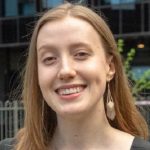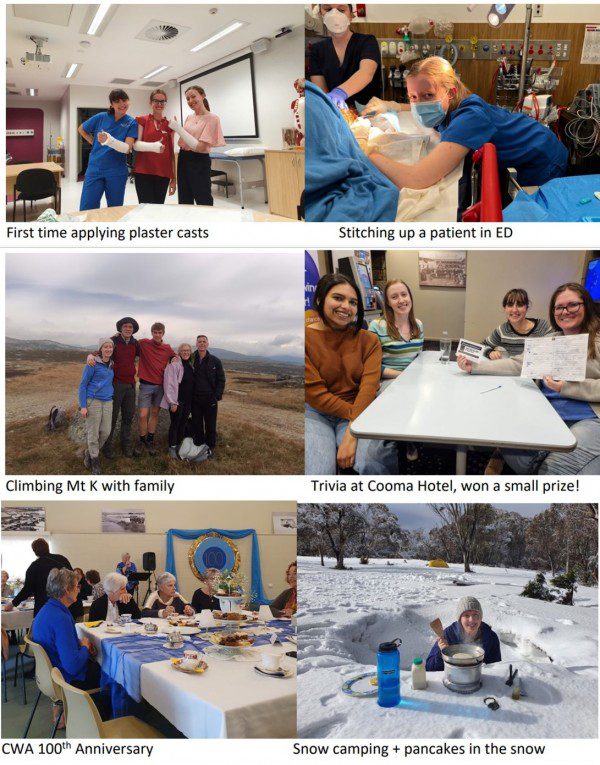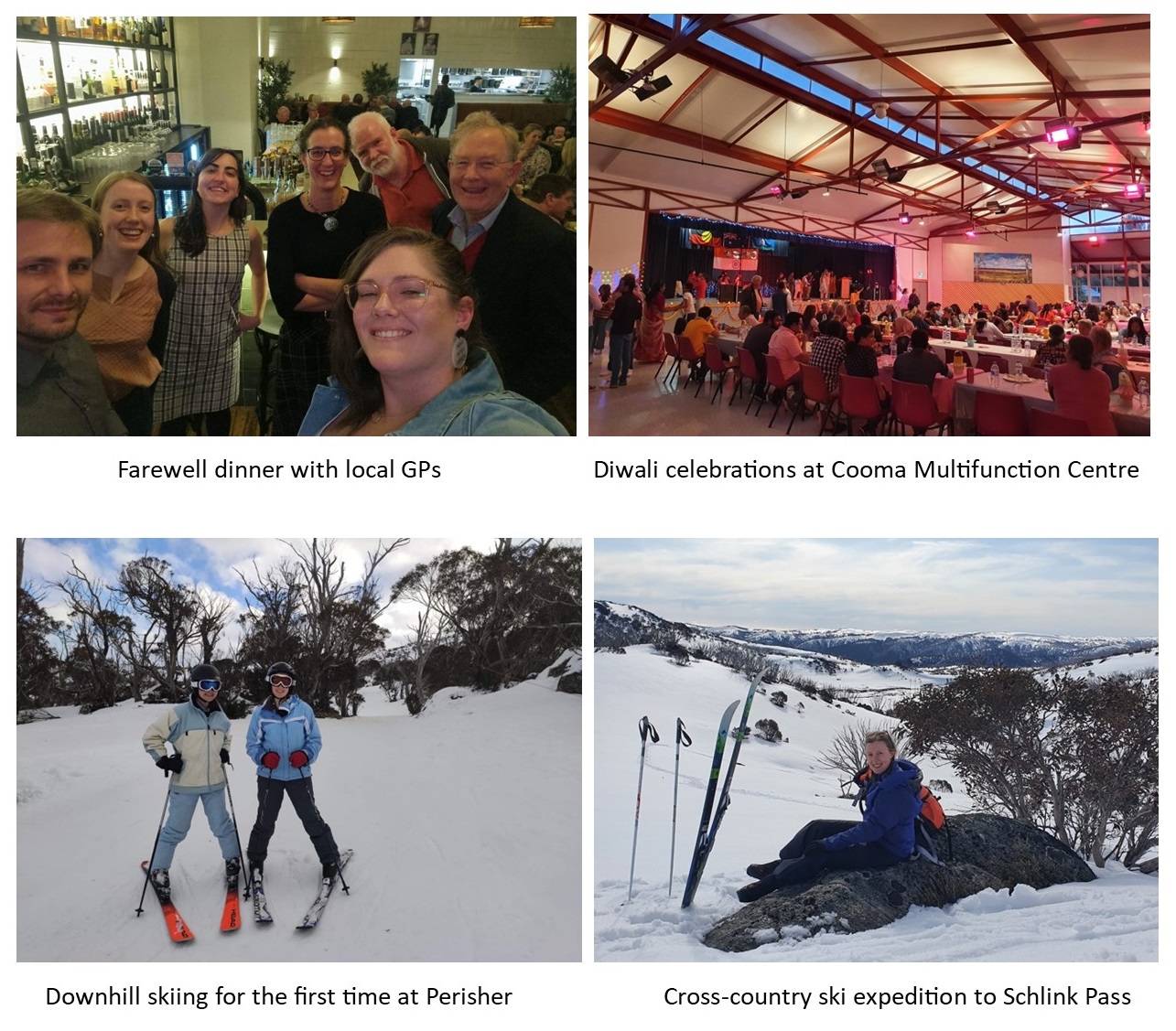
Abigail de Waard (nee Slater)
Rural Medical Scholarship 2022
Australian National University
Cooma Rural Clinical School
Scholarship Awarded 2022
Sponsored by:
Late PDG Joe Scorer Scholarship
How would the Australian Rotary Rural Health Scholarship help with my studies at the Rural Clinical School?
Just as it takes a village to raise a child, it takes a community to raise a doctor. As Cooma will play a vital role in my medical training, it feels only natural to deeply invest into the Cooma community. My journey into Medicine was shaped by my long-running passion for serving and connecting with people. Through intentional and consistent involvement, I hope to better understand the lived experiences of my patients and colleagues in Cooma. In turn, I hope this will also help the community to build trust in me as a medical student.
I received a taste of this last summer when I undertook a two-week placement in Condobolin supported by the NSW Rural Doctor’s Network. Whilst in Condobolin, I swam in an aqua aerobics class, consumed scones with the CWA, enjoyed a BBQ breakfast at the Australia Day awards ceremony and squirmed as mice ran through the community cinema. The opportunity to undertake a year-long placement in Cooma will enable me to build deep and lasting
relationships in the community. The connections provided by the Scholarship to the Rotary Club, including their events and meetings, will provide a foundation upon which these relationships can begin to flourish.
I have a strong interest in practicing rurally when I graduate and look forward to experiencing the joys and challenges of rural practice next year. The financial support of the Scholarship will enable me to invest more time and energy into Cooma, as I will be able to resign from my current jobs in Canberra. I am currently reliant upon this income to supplement my Centrelink allowance, so the Scholarship will greatly reduce travel back to Canberra and free up time to spend in the community. This will allow me to fully experience the lifestyle in Cooma and consider options for rural training and practice post-graduation.
Just like the medical profession, our communities are constantly evolving. The Snowy Mountains Scheme has seen Cooma welcome people from around the world since the 1950s. I have a strong interest in the healthcare challenges faced by individuals from culturally and linguistically diverse backgrounds. This stems from my study of Chinese language and culture, which I began at nine years old and continued into university during which I spent a year living in Taipei. Last summer, I completed a voluntary placement with a multicultural health service in my hometown (Newcastle). Through interpreters, I spoke to migrants and refugees about the unique social and health-related challenges they faced. Migrants in rural settings commented that although there were challenges due to the limited availability of services, they generally felt connected and included by their community. Given that Cooma’s multicultural community is currently experiencing a resurgence due to Snowy 2.0, I am eager to observe the response of the community and healthcare services.
In summary, the financial support and connections provided by the Scholarship will provide a strong foundation upon which I can be shaped into a community minded, rural doctor of the future.
Current Progressive Report
My second semester in Cooma involved a mix of clinical placement, exam preparation and adventures into the high country. My placements included general practice, surgery (general, orthopaedic and gynaecological) and emergency medicine. I attended my first delivery at the Cooma Hospital Maternity Service, which I particularly enjoyed. In October, we were involved with the rural week experience for second year ANU medical students. For this, we organised and ran an interactive session which required the students to apply basic life support principles to a mock clinical scenario. Finally, in November we delivered a presentation to local high school students about the importance of HPV vaccination for a medical school research project. We appreciated the insightful questions asked by the students and the stimulating discussion this generated.
Towards the end of the year, the local doctors put special effort into providing learning opportunities to consolidate our knowledge for exams. These sessions were constructive and helpful. I really appreciated building ongoing relationships with the local doctors, nurses and healthcare staff over the course of the year in Cooma. The humour and camaraderie that we shared was a highlight for me. At the end of the year, the Rural Clinical School organised a lovely farewell dinner at a local restaurant. The 2023 cohort of Cooma medical students were also invited to attend, which was a great opportunity to exchange knowledge about our experiences in Cooma.
Outside of clinical placement, I enjoyed ongoing involvement with the Cooma community. This included attending local Diwali celebrations and going to the Cooma Car Club museum. I went downhill skiing for the first time with the other medical students at Perisher. I also embarked on a three-day cross-country ski expedition with friends; we stayed in back-country huts and enjoyed some spectacular views. Once the warmer weather returned, I was able to resume hiking in the mountains in my spare time. These activities were often a helpful break from the demands of study and clinical placement.
Thankfully, I passed my end-of-year exams which concluded my rural year in Cooma. I would like to thank the sponsors and wider Rotary community for providing this scholarship. Undertaking my rural year in Cooma was a fantastic and memorable experience which enabled significant personal and professional growth.

